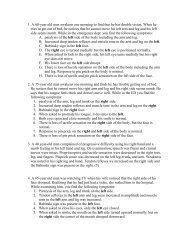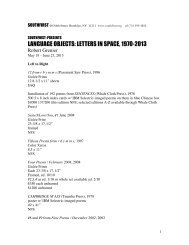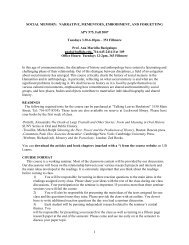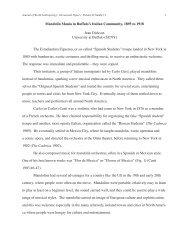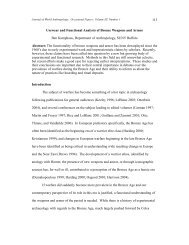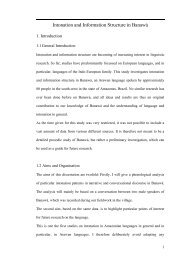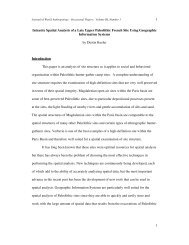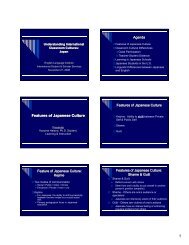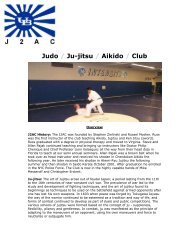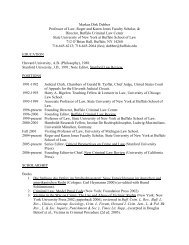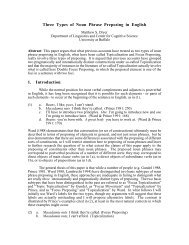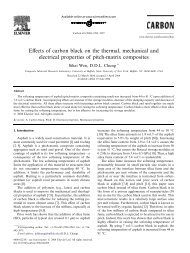Electrophysiological Evidence for Sentence Comprehension - Wings
Electrophysiological Evidence for Sentence Comprehension - Wings
Electrophysiological Evidence for Sentence Comprehension - Wings
You also want an ePaper? Increase the reach of your titles
YUMPU automatically turns print PDFs into web optimized ePapers that Google loves.
could, in fact, be the focus of the sentence, the very in<strong>for</strong>mation that is intended to be<br />
transmitted. The ERP data in the ‘tense’ and ‘quantifier’ experiment show that a certain<br />
kind of grammatical (syntactic) error – in RRG described on a separate, operator<br />
projection, elicits a semantics-like ERP response. This could be interpreted as evidence<br />
<strong>for</strong> mapping between the operator projection and a set of semantic relations as defined in<br />
various sorts of modal logic, as suggested above. An augmentation of RRG linking<br />
mechanism with a new one, one that links operators and modal logic operators can be<br />
suggested, as well – this enterprise would be, however, beyond the scope of this study.<br />
5.2. Children With TLD and Children With SLI<br />
5.2.1. Adult control group<br />
The second group of experiments was meant to provide insight into the developmental<br />
aspect of sentence processing by comparing three groups of participants: adults (as a<br />
baseline), children with typical language development and children with Specific<br />
Language Impairment. All groups of participants took part in the two experiments in<br />
which case and tense, i.e. constituent and operator projection were manipulated. The<br />
results <strong>for</strong> the adults are similar to the results in the first two experiments. Figures 33 and<br />
34 show the overview of the results <strong>for</strong> the ‘case-chi’ and ‘tense-chi’ experiments<br />
obtained in a group of 10 healthy adults.<br />
108



